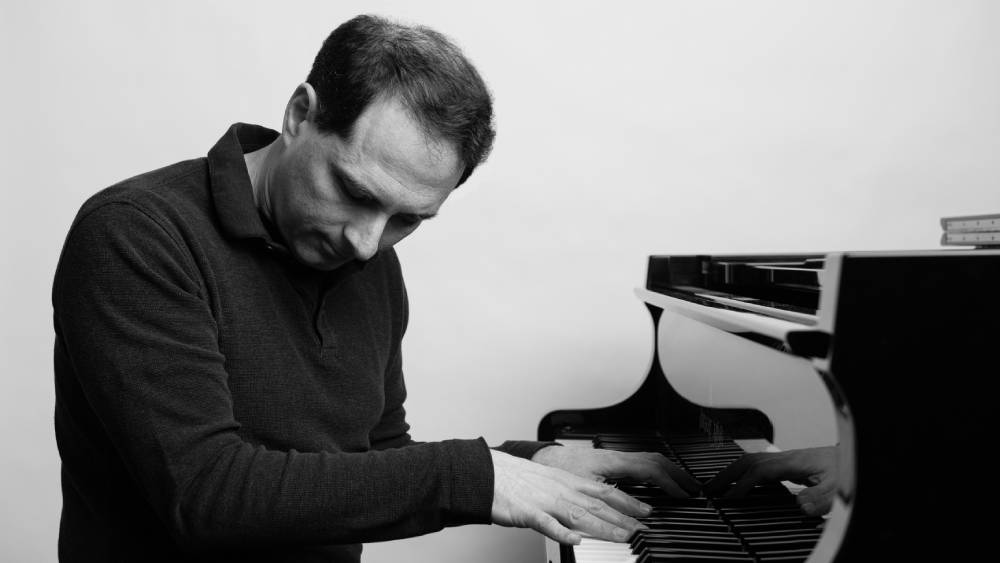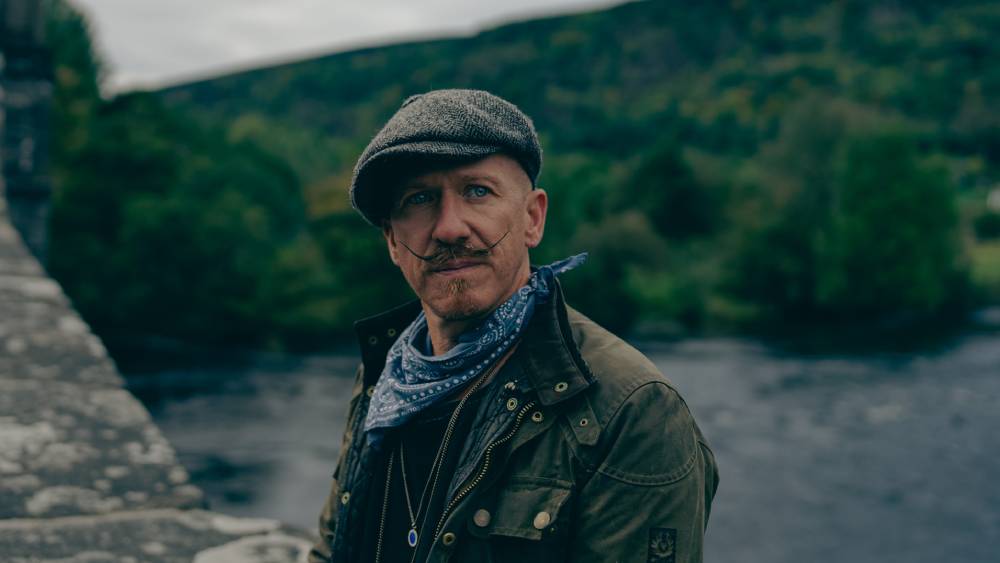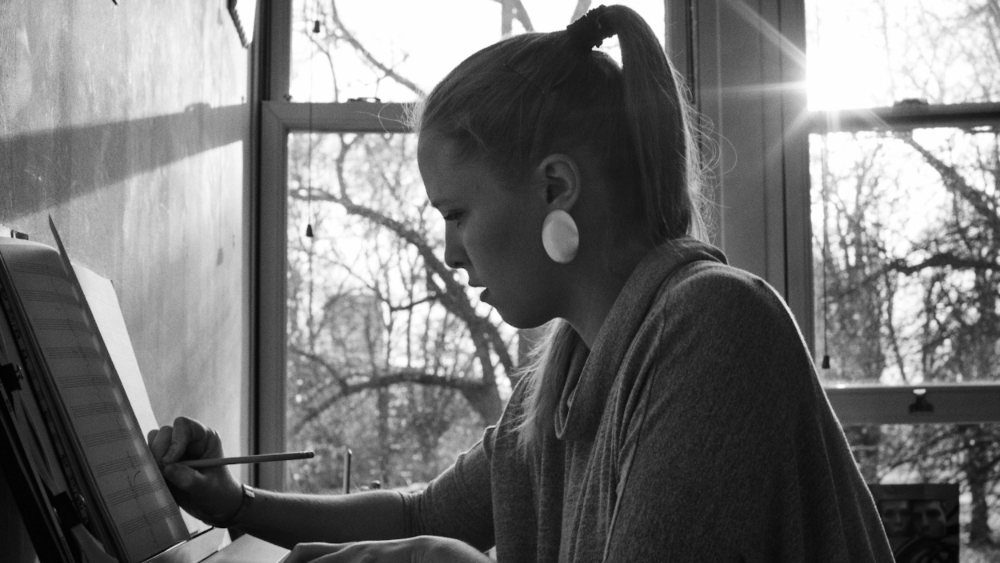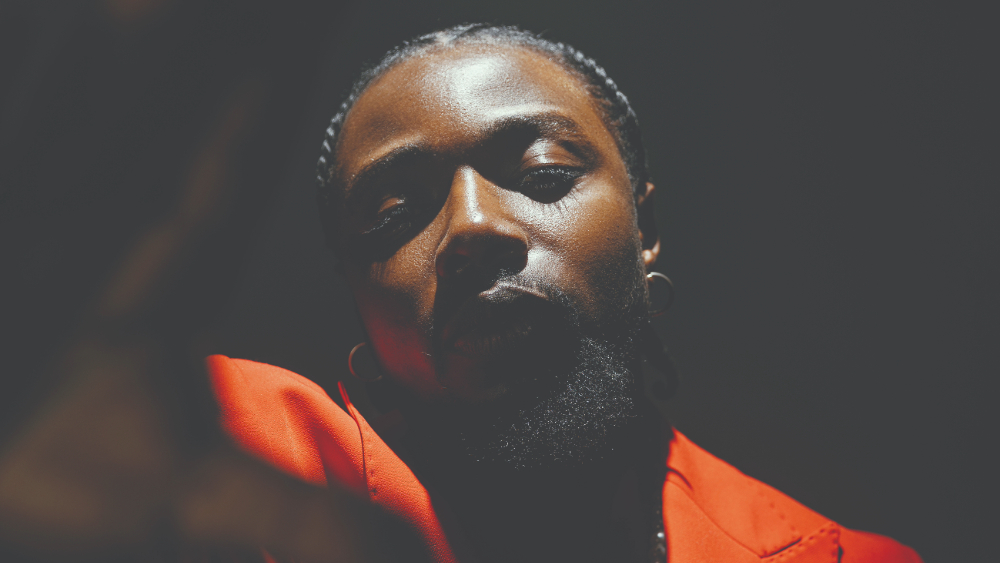If you don’t buy a ticket, you won’t win the lottery — or, in Alex Heffes’ case, a momentous raffle prize that would have a major bearing on his life.
‘I won the E.T. soundtrack in a raffle, and I remember putting it on at home and being slightly disappointed that it wasn't the story of the film — it was just the music,’ Alex recalls to M about his first real brush with film music. ‘But I carried on listening to it and I realised that it was telling the story of the film, just without any words. I would've been 11 or 12 at the time, but it was a real light bulb moment.’
Inspiration sparked by hearing that classic John Williams score, Alex embarked on the long path to becoming the in-demand composer for film and TV he is today. His numerous credits include State of Play, Black Mirror and the 2016 reboot of Roots, while he was nominated for a Golden Globe in 2014 for his Mandela: Long Walk to Freedom score. He more recently scored the Kate Winslet and Hugh Grant-starring HBO drama The Regime along with Alexandre Desplat, while he also worked closely with Michael Keaton on the soundtrack for the star’s self-directed Knox Goes Away.
Film music, Alex says, has only risen in prominence since he first started writing to picture. ‘When we first started recording at the likes of Abbey Road, it felt like film music was the poor cousin of an exciting pop session,' he adds. 'While I don't think it's totally flipped the other way, it's given a lot more credence and profile now — whether that's because of the internet, social media or just general awareness about film music changing. You hear more film music now, like live concerts on the radio, and none of that really existed a long time ago. It's exciting times for film music.'
M caught up with Alex to discuss his love of the genre, why budding composers should join PRS and his most underrated score to date.
What first sparked your love for film music?
'I was addicted to cinema when I was small. We had a cinema at the end of the street, and you used to be able to buy a ticket to see a film multiple times. I saw Star Wars in 1977, and later E.T. and Raiders of the Lost Ark, so I'm part of that generation who saw those films as a kid for the first time. I became hooked on film, but I don't think I realised I was really hooked on the music until my parents noticed me trying to pick out tunes on the piano. I'd drive myself nuts trying to figure out the harmony in Star Wars, which is sort of crunchy and hard to get your head around as an adult, let alone as a child.
‘It soon became a dream of mine to become a film composer. But, living in the UK, Hollywood was a long way away and it didn't seem like a real career prospect — like you might dream of becoming an astronaut. You don’t really know how that might ever happen.'
'It's exciting times for film music.'
What was your breakthrough moment as a film composer?
'I was really lucky because I was working as an assistant to a composer and I ended up doing One Day In September with Kevin Macdonald, which won an Oscar for Best Documentary Feature in 2000. It was Kevin’s first film, while it was also the first “grown-up” film I'd done on my own. It gave me a little bit of a platform to start thinking of myself as a composer. I'd been lucky to work on a lot of films before that, either ghost-writing or assisting, so I'd been around orchestras and studios in my 20s which, looking back on it now, was an amazing way to learn.’
Tell us more about your creative relationship with Kevin Macdonald.
'I've worked with Kevin a lot. We did Touching The Void and The Last King of Scotland, which was quite a big film at the time. I got to go out to Africa to record a lot of music for that — people started thinking I was a world music expert, which I honestly wasn't! But I was thrown into a scenario where I'd been to Africa to record and produce a lot of songs, so people started asking me to do other things like Mandela: Long Walk to Freedom. I went to South Africa to record for that, as well as recording strings at Abbey Road.
‘I became quite known for combining different genres to make movie music, trying to blend them together in a slightly more sophisticated way than just jamming two different cultures together. You try to do it in a way that works really well in the movie that is also respectful for where you're finding those performers or that material.'
Why is music so integral to film?
'I remember reading a quote from John Williams, who said that if we knew the answer to that, we'd all be geniuses! It is a bit of a mystery, and a bit strange: we're sitting there watching a story and there's a 100-piece orchestra going at the same time, but we just accept that!
'I think there's something very mysterious and deep about music that I don't think we really understand. It's a great mystery — and I still find that today, having done 70-80 films and TV shows — that I can put a piece of music up to picture, and it's like magic. I know there are things I can do to make certain things work, but it's those occasions where you try something unexpected that you don't necessarily think might work, or you just do something very quickly, and all of a sudden it just sparks. So I think it's the mystery that keeps us all hooked.'
What tips do you have for budding film and TV composers?
'I got some really good advice from composers when I was young, so it's important for me to try and do the same. That’s part of the most important thing: speak to a real composer. I remember being thrilled when I had the chance to do that when I was very young, because it just gives you a feel for the person that you could be.
‘Do as many short films or student films as possible, because it gives you a chance to cut your teeth writing music without any huge financial pressures. You also get to meet people your own age who you're gonna grow up with creatively. I never went to film school, but I had a trick that saved me a lot of money: I used to go into the lobbies of some of the film schools and take down the numbers of people who were desperate for free music for their films! I used to phone them up and say, "I'm a composer, I can do it!" I ended up doing 20 or 30 shorts, which was a great way of cutting your teeth and learning.’
Would you recommend getting into composing production music?
'I know the landscape of library music and production music has changed a lot since I was young, but I remember doing some production music where, at the time, I was able to write for live orchestra and bands, which was amazing. It meant I could build up a catalogue that could, after a while, start earning some money through my PRS membership, which is a huge bonus. It's something I always recommend that people do in between films or TV projects as you're growing, as it's a way of trying out different musical styles. There's no guarantee that you're going to get paid instantly, but when you build a certain amount of catalogue you can then build up some PRS income, and that's a really wonderful thing.
‘I've been a PRS member since I first started in music. I think my first cheque was for less than £10, and it said on the statement, "We're not going to pay you until you get to £10". But I was incredibly excited! It was wonderful: I felt a real sense of achievement being a PRS member. So doing something like production music can build that side of your income up. I’d advise composers to stretch themselves, test out their chops and ultimately create some income for themselves.'
'I felt a real sense of achievement being a PRS member.'
You recently scored Knox Goes Away, which starred and was directed by Michael Keaton. What was the process of working on the music with Michael like?
'It was brilliant. Obviously I'm a massive fan of Michael’s, but it's also quite rare to get an insight from an actor as he was directing the film as well. So when we were working on the music together I got a psychological insight into the main character from the horse's mouth, which is really unusual because you don't usually get to meet the actor. It was really interesting hearing his actor's perspective on how music might interact with this film. He’s got lots of ideas, but is also very open to things.'
What’s your most underrated film score?
‘I’ve talked about some of the films I've done that have been set in Africa, and there's one I really love, The First Grader, that I did with Justin Chadwick. It's set in Kenya, and it's a true story about an 84-year-old man who decided that he wanted to go back and get his primary school education because it had suddenly become free in Kenya.
'The score was something that I wrote really, really quickly. I'd never worked with Justin before, but I remember him coming over to my studio to hear the music for the first time and asking, "Have you got some ideas?" I said, "Well, I've written more than half the film". He was a bit shocked! But I was so inspired by the film: it's just such a lovely story and it worked so well that I wrote lots of music really quickly. I remember Justin listened to it with the producer David Thompson, and David was dancing around the studio listening to it! When you really feel something, you do your best work.'
Alex Heffes' original motion picture soundtrack for Knox Goes Away is out now via Lakeshore Records.





